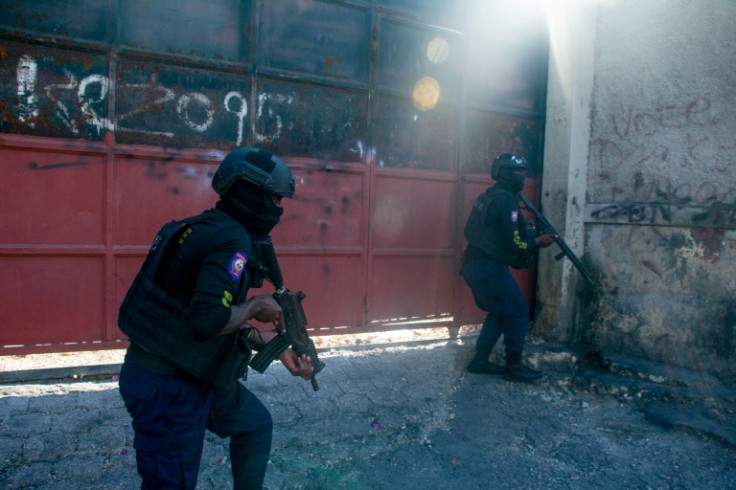Haiti Leaders Struggle To Find Transition Consensus As Crisis Broils

Efforts to set up a transitional government and fill a power vacuum in violence-wracked Haiti foundered Monday as delegates squabbled over choosing a leader and death threats caused one member to quit over the weekend.
The Caribbean nation's security crisis has been intensified by a political one: elections have not been held since 2016, with Prime Minister Ariel Henry heading the country since President Jovenel Moise's 2021 assassination.
As unrest has worsened under Henry's rule -- culminating when armed gangs united to launch attacks and demand his ouster late last month -- the prime minister said he would resign once a transitional council was stood up.
But the body, supported by the United Nations and regional bloc CARICOM among others, is still struggling to come into shape two weeks after Henry's March 11 announcement.
The transitional council -- to be composed of seven voting members and two non-voting members -- draws from Haitian political parties, the private sector and others, and is to name an interim prime minister and government to set the stage for fresh elections.
Its formation has dragged on amid arduous negotiations, though its composition changed again over the weekend.
Haiti's ambassador to UNESCO Dominique Dupuy, chosen by one of the political coalitions, said she was stepping aside, citing threats against her and her family as well as misogynistic attacks.
She was the sole woman representative on the council, and was replaced by Smith Augustin, Haiti's former ambassador to the Dominican Republic.
Holding up the official formation of the council is the disagreement over who should lead it, one of the delegates told AFP, speaking anonymously.
Meetings were held through the weekend and on Monday, with a virtual summit between the delegates and CARICOM set for the afternoon.
The meetings made progress on several points, the delegate said, including on the criteria for becoming president of the council and for choosing the interim prime minister.
The meeting with CARICOM was due to focus on finalizing a formal agreement on the installation of the presidential council.
Monday evening, the members of the council are expected to try to choose a leader, one of the parties involved in the negotiations told AFP.
Ahead of the CARICOM meeting, a calm held across Port-au-Prince Monday morning, after a weekend of intense exchanges of gunfire in the Haitian capital, which has been under a state of emergency for almost a month.
While people made their way onto the street, however, the absence of government order could still be felt as schools and government offices remained closed.
Gangs are thought to control some 80 percent of the capital and swaths of the countryside.
The United Nations warned Monday that aid services in Port-au-Prince were still being disrupted by violence and insecurity.
"The crisis has crippled operations and hindered access to the few remaining facilities," said Farhan Haq, a spokesman for UN Secretary-General Antonio Guterres.
Haq added that, according to the World Health Organization, fewer than half of the health facilities in Haiti's capital are functioning at their normal capacity.
With the crisis spiraling, several countries have begun evacuating their citizens, including over a dozen Canadians who were flown to neighboring Dominican Republic, Ottawa said Monday.
© Copyright AFP 2024. All rights reserved.











